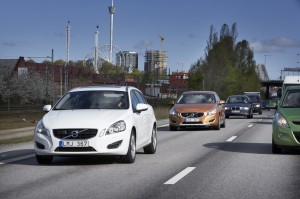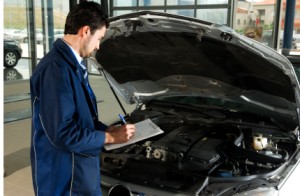
News
All the latest news from Motor Answering and the automotive industry.
Do you pay too much for your MOT?
Posted by: Neil Murphy | Posted on: August 15th, 2014 | 0 Comments
Unaware by many motorists that there is a Governmental boundary given to garages in regards to how much they can charge for MOTs, a lot of us may be paying over the odds. The maximum that any garage can charge for a car with up to 8 seats is £54.85.
The good news is that there is no minimum charge for MOTs meaning that you must shop around to ensure you find the best deal.
Research carried out by motoring.co.uk has showed that booking and buying your MOT service online can cost as little as £19 with Independent franchised dealers charging the maximum price.
- Online – £19, if bought with a full service
- High street auto – £20, if bought with a full service
- High street auto – £29.95, if bought without a full service
- Main dealer – £39
- Independent franchised dealers group – £54.85
Have a look at the maximum charges for each vehicle here.
One of the main inconveniences with the dreaded test are the results . To ensure you don’t endure further costs if your car fails have a look at a few things you can check yourself before putting your car in for its test.
First of all you should check your lighting system on your car:
- Headlights – check that low and high beam work
- Brake lights
- Left and right, front and rear indicators
- Driver’s side fog light
- Hazard and emergency lights
For the interior of your car, check the following:
- No tears or slices on seats
- All interior and exterior mirrors should be in perfect condition
The exterior of your car should meet the following:
- Doors should all shut correctly, including the boot
- There should be no rust or corrosion
- Should not be any rattles
- Suspension and Steering should be checked
- Emission levels must be 14
- Brakes should be checked with all cables fitted correctly
- Car must not pull to the left or right when the brakes are in use
- Tyres must be checked
- Windscreens should not have any cracks or chips that would obscure the view of the driver
- Wipers and washers should be in perfect working order
Be prepared for new tax regulations introduced in October
Posted by: Neil Murphy | Posted on: August 13th, 2014 | 0 Comments
As October approaches we bid farewell to warm weather, longer evenings and the most important for drivers, the traditional paper tax disc. The disc will be replaced by an electronic system in a boost to streamline services and apparently save British businesses millions of pounds a year in administrative costs.
New rules mean that for drivers to be taxed on the road they will have to register their vehicle online and pay via direct debit or at the local post office.
If you don’t follow the new guidelines, that will be in place on the 1st of October 2014, your car will not be taxed. Number plate recognition cameras are in place to monitor each number plate on the road.
Saying farewell to the paper disc isn’t the only change that is being made. In the past if a used car is bought and there are still a few months left on the original tax purchase, the tax would be transferred over to the new driver. With the new system this will not happen, the buyer will have to register again and buy new tax to ensure the car is legal on the roads.
It is the sellers responsibility to inform the DVLA of the change in ownership. If this doesn’t happen they could face a fine of £1,000. To inform the DVLA of the change you can fill out a VSC form and send it to your nearest branch. The upside of the change will see the seller receive a refund for any full months left on their previously purchased tax.
The head of road policy at the AA, Paul Watters had this to say about the change, “This is a huge change and vehicle owners and drivers need to be aware of the rules. A driver, not registered owner, can be issued a non-endorsable fixed penalty for driving an untaxed car. An owner can be fined £80 for using an untaxed vehicle (one not registered off the road) and can be charged any back tax.”
Drivers are being told to check if their vehicle was taxed or SORN’d (declared off the road) before driving the car, to do this go here.
Self-driving cars are steering their way on to public roads!
Posted by: Neil Murphy | Posted on: August 5th, 2014 | 0 Comments
The department of transport had predicted that self-driving cars would be allowed to drive on public roads by the end of 2013.
 Although it may be a year later the prediction may about to become true.
Although it may be a year later the prediction may about to become true.
With the Government announcing that they will be allowed on public roads on January next year, Vince Cable the Business sectary had this to say
“This announcement will see driver-less cars take to our streets in less than six months, putting us at the forefront of this transformational technology and opening up new opportunities for our economy and society,”
This is great news for the UK as companies in the US and other countries have been adapting this idea for a few years. Google’s self-driving car has done more that 300,000 miles in California alone.
It is believed that in the long term the cars will be safer as human mistakes will be eliminated from the roads, more fuel efficient and help with congestion as all of the cars will be in sync with each other.
Experts believe that the cars will be used for businesses such as airports when travelers need to be transported to and from terminals or aircraft. have to It all sounds too good to be true however it is believed that people will not be able to purchase on of these cars in this decade so fingers crossed for next.






